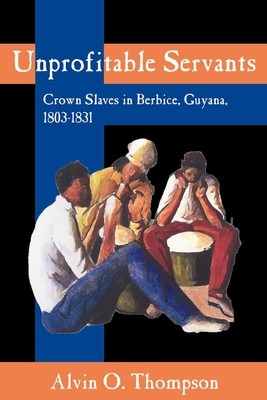
- We will send in 10–14 business days.
- Author: Alvin O Thompson
- Publisher: University of the West Indies Press
- Year: 2000
- Pages: 356
- ISBN-10: 9766401209
- ISBN-13: 9789766401207
- Format: 17.3 x 21.8 x 2.2 cm, minkšti viršeliai
- Language: English
- SAVE -10% with code: EXTRA
Reviews
Description
In 1803, during the Napoleonic Wars, the British imperial government conquered the Dutch colony of Berbice and took over the management of presumed governmental slaves. These consisted of persons on four estates and artisans in New Amsterdam, the colony's capital, which comprised a group known as winkel (shop) slaves. The British efforts to generate a profit from these slaves caused conflict and engendered resistance. This study is important because it illustrates that the imperial government arrived at the general abolition of slavery throughout its colonies in a rather ad hoc and piecemeal fashion. The study also raises important questions about the government's commitment to general abolition, noting that the crown slaves were hardly treated better than the majority of privately owned slaves. Thompson uses a wealth of archival sources and makes a significant contribution by utilizing primary material so that the slaves themselves recount their individual experiences. The major strength of this work is that it deals with state slaves, a study that has never been done before in the historiography of slavery in the Americas.
EXTRA 10 % discount with code: EXTRA
The promotion ends in 22d.19:35:31
The discount code is valid when purchasing from 10 €. Discounts do not stack.
- Author: Alvin O Thompson
- Publisher: University of the West Indies Press
- Year: 2000
- Pages: 356
- ISBN-10: 9766401209
- ISBN-13: 9789766401207
- Format: 17.3 x 21.8 x 2.2 cm, minkšti viršeliai
- Language: English English
In 1803, during the Napoleonic Wars, the British imperial government conquered the Dutch colony of Berbice and took over the management of presumed governmental slaves. These consisted of persons on four estates and artisans in New Amsterdam, the colony's capital, which comprised a group known as winkel (shop) slaves. The British efforts to generate a profit from these slaves caused conflict and engendered resistance. This study is important because it illustrates that the imperial government arrived at the general abolition of slavery throughout its colonies in a rather ad hoc and piecemeal fashion. The study also raises important questions about the government's commitment to general abolition, noting that the crown slaves were hardly treated better than the majority of privately owned slaves. Thompson uses a wealth of archival sources and makes a significant contribution by utilizing primary material so that the slaves themselves recount their individual experiences. The major strength of this work is that it deals with state slaves, a study that has never been done before in the historiography of slavery in the Americas.


Reviews